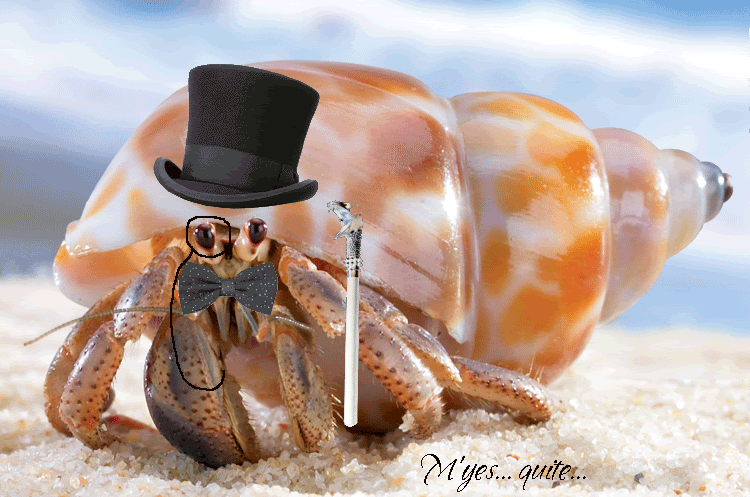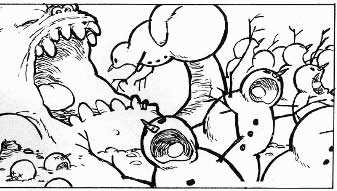I am also an only child, which makes being alone pretty easy most of the time.
To be perfectly frank I'm really for that introvert lifestyle. I am completely happy with my introvertedness (why is that not a word?), and I definitely do not wish I was an extrovert...except when it snows.
I don't know why, but for some reason I really love the idea of coming in to a warm house after a cold but beautiful walk in the snow, and then making yourself a nice steamy much of dark hot chocolate with extra marshmallows and sitting by the fire playing a nice board game with the family. I mean, doesn't everybody love the idea of that. Isn't that, like, the American Dream or something?
I still have these feelings now, but especially when it would snow when I was younger it was as if that was all I wanted out of life (that and to be able to build awesome snow sculptures like Calvin from Calvin and Hobbes).
Anyway, at a very young age my hopes and dreams were dashed because either
a) my parents didn't really enjoy playing children's board games with me and frequently looked for an excuse to get out of it...
or
b) I was way to cool to be playing board games with my parents of all people.
And then I discovered Jenga.
For those of you who don't know, Jenga is a game that starts out looking like this
Then the player or players slowly remove the rectangle blocks from anywhere but the very top of the tower. Like this
The object of the game is basically to see how long you can go with out the tower going like this
So I started liking Jenga because it's fun, and better yet it's fun to play alone. There aren't many games like that. I don't know if you've tried playing Monopoly or Apples to Apples by yourself, but I can promise you from experience they're much better with other people (games are as a rule one of the few things that people do make better).
So as I grew older and continued playing Jenga, and then discovered my love for writing and analyzing text metaphors and symbolism, I realized the other reason why Jenga is so fantastic...
It's a metaphor.
Now I realize, that you probably think I'm nuts (may or may not be true) and that this theory of mine is far fetched, but I'm asking you to hear me (or I guess read me?) out first. Then, if you decide I'm crazy and my metaphor makes no sense that's fine by me. As long as you read my reasoning.
Basically, the way I see it, Jenga is a metaphor for people. Every person starts as a clean, innocent, fresh newborn baby. Like that first tower.
But then, the baby enters the world and starts to grow up, and that's when the trouble starts.
The players in the game of Jenga are also people. They're the people who laughed at that baby when she fell, the people who bullied her, and lied to her, and talked about her behind her back. And every time they do one of those things, they push her just a little closer to her breaking point. Like removing the pieces.
Finally, one day, the baby has had enough and...she falls. Just like the tower.
So, I think Jenga is really important to realize as a metaphor, because it makes us think about the way we affect people: how even if it's something so little, so insignificant, to us, it could be the equivalent of removing that person's final block. I think that in some indirect way, playing Jenga actually helps us in our relationships with other's by teaching us the concept of pushing something too far past it's limits, and by making us aware of how our decisions (i.e. which block to pull) effect everyone around us as well.
I've been thinking about this a lot recently because it's snowing, and also because I've been dealing with a lot of social anxiety and depression recently, and sometimes I wonder how many blocks I have left.






No comments:
Post a Comment
Hello! Thanks so much for reading my little blog. Comments are much appreciated and always responded to. Feel free to leave a link to your blog as well, so I can stop by.